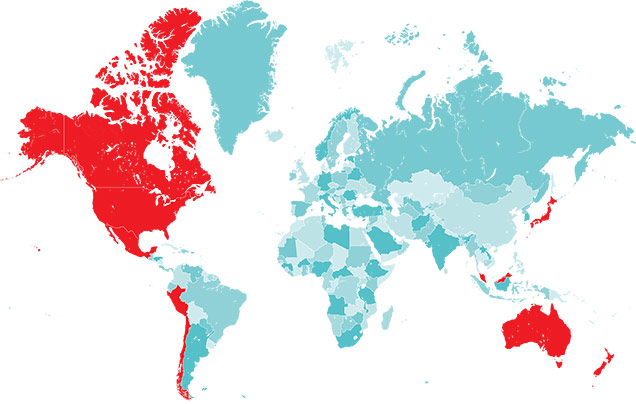Is the TPP all it's cracked up to be?
 CREDIT: CANDIS BROSS
CREDIT: CANDIS BROSSThe Trans-Pacific Paternership (TPP) is a trade agreement between Australia, Canada, Brunei, Chile, Japan, Malaysia, Mexico, New Zealand, Peru, Singapore, United States of America and Vietnam.
The Trans Pacific Partnership (TPP) is looking to create a freetrade zone among 12 countries around the Pacific who account for 40 per cent of the world’s economic output.
The main industries effected in Canada will be the auto sector, with the former 62.5 per cent of a car’s content that had to be local changing to 45 per cent as well as dairy farming, as TPP countries get duty-free access to 3.25 per cent of Canada’s dairy market along with just over two per cent of our poultry market.
The government has promised a little over $4-billion in subsidies over the next 15 years to protect farmers’ revenues.
Tommy Faulkner is a dairy farmer just outside of London, and said that things could have come out a lot worse.
“The 3.25 per cent of market access, I think that people in the industry were terribly worried that it could have been much more, and I think they all realized that there was going to be something given away because there had to be for the greater good.”
And by the “greater good” Faulkner means for the sake of other industries that had to be included in the trade deal, but while he knows that this was necessary he added that the devil is in the details.
“The 3.25 per cent obviously is going to be the most lucrative products that we produce, so it will effect a dairy producer’s profit margin by more than [that]. Any trade access wasn’t going to be to give away the lower valued products I suppose.”
He also said that producers and consumers alike should be grateful to former Prime Minister Harper for trying to preserve and improve a valuable industry.
Now that the TPP text has been released, Fanshawe Political Science professor Matt Farrell said he isn’t surprised by how the government went about it.
“The government prefers to conduct these kinds of negotiations in secret, so when you’re talking about trade agreements that are going to be sensitive they need to focus on the two parties that are in the room. They can’t be worried about every constituency back home…these things have to be conducted in secret, otherwise it could weaken your respective government’s negotiating position.”
He does, however, have concerns about the government’s claims of transparency considering the TPP text is 6,000 pages long.
“You see this all the time in government. Any time they’re accused of not being transparent, they just overload you with documents… It’s a common ploy by governments that are trying to respond to criticism and do some damage control.”
One industry that seems to be taking a hit is I.T., with copyright and protection laws being changed without warning. Farrell said that this calls into question calling the TPP a ‘free trade’ deal.
“It looks like this one is not going to be friendly to some Canadian tech companies…because technology companies use a lot of stuff that’s public domain, and if we’re extending copyright [to 70 years], then that really restrains what we can use. And we’re paying extra royalties that we otherwise wouldn’t be paying. While it’s billed as a free trade agreement that’s actually a very protectionist measure.”
His theory is that it has to do with a lot of Disney’s work that would have become public domain.
Since this agreement was negotiated by the Harper government, it will be interesting to see how new Prime Minister Justin Trudeau works with it.














